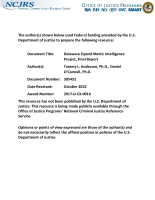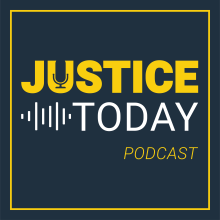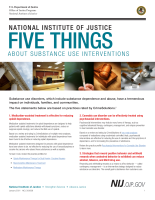Substance abuse
Testing the Efficacy of Judicial Monitoring: A Randomized Trial at the Rochester
The Intersection of Methamphetamine and Violence in the United States: A County-level Assessment of Methamphetamine Overdose Mortality and Violent Crime
Impact of Traumatic Brain Injury on the Receipt of Services Following Release from Prison
Gender-Based Violence and the Latinx Community
See the YouTube Terms of Service and Google Privacy Policy
Defining and Studying Elder Abuse Polyvictimization
NIJ Social Science Analyst Yunsoo Park shares her knowledge about elder abuse, a widespread issue in the U.S. and around the world, particularly polyvictimization — the experience of a range of different types of abuse and maltreatment. As much as 11% of community-residing older adults experienced some form of abuse or mistreatment in the past year. Yunsoo discusses risk factors, difficulties in defining and studying elder abuse polyvictimization, and strategies for intervention and prevention. Stacy Lee Reynolds, a Communications Assistant with NIJ, hosts.
Cross-sectional and Temporal Associations Between Cyber Dating Abuse Victimization and Mental Health and Substance Use Outcomes
Delaware Opioid Metric Intelligence Project, Final Report
Assessing the impact of treatment quality, matching and dosage on juvenile justice outcomes among a statewide sample of youth with co-occurring substance abuse and mental health disorders
From Successful Reentry to Stronger Communities
Longitudinal Effects of Gendered Harassment Perpetration and Victimization on Mental Health Outcomes in Adolescence
The Role of Acculturation in the Relation Between Intimate Partner Violence and Substance Misuse Among IPV-victimized Hispanic Women in the Community
Learning from Doing Evaluating the Effectiveness of the Second Chance Act Grant Program
Reauthorized in 2018, the Second Chance Act (SCA) aims to reduce recidivism and improve outcomes for people returning from state and federal prisons, local jails, and juvenile facilities through the provision of federal grants. During this panel, National Institute of Justice-funded researchers will detail two ongoing evaluations of the SCA grant program:
- An evaluation of the effectiveness of the SCA grant program per Title V of the First Step Act.
- A longitudinal examination of the long-term impacts of the SCA program.
See the YouTube Terms of Service and Google Privacy Policy
From Successful Reentry to Stronger Communities
Contextualizing the Association Between School Climate and Student Well-Being: The Moderating Role of Rurality
Access to Health Care and Treatment Among Individuals Convicted of Sexual Offenses Paroled to Urban and Rural Communities
Sex Trafficking and Substance Use, Identifying High-Priority Needs Within the Criminal Justice System
Integrated Health Care and Criminal Justice Data Viewing the Intersection of Public Safety, Public Health, and Public Policy Through a New Lens: Lessons From Camden, New Jersey
Modified TC for MICA Offenders: Crime Outcomes
An Acute Post-Rape Intervention to Prevent Substance Use and Abuse
Social Competence Promotion With Inner-City and Suburban Young Adolescents: Effects on School Adjustment and Alcohol Use
Crack and the Developmental Progression of Substance Abuse
Booker and Beyond Analyzing Sentencing Reform and Exploring New Research Directions
This webinar features a discussion of previously published research on the U.S. Supreme Court’s 2005 Booker decision - which effectively transformed the United States Sentencing Guidelines from a mandatory, to an advisory, system. The presentation will address selected research findings from the last 15 years. Individual participants will briefly review their previous research findings with particular attention paid to the analytic methods used.
See the YouTube Terms of Service and Google Privacy Policy









